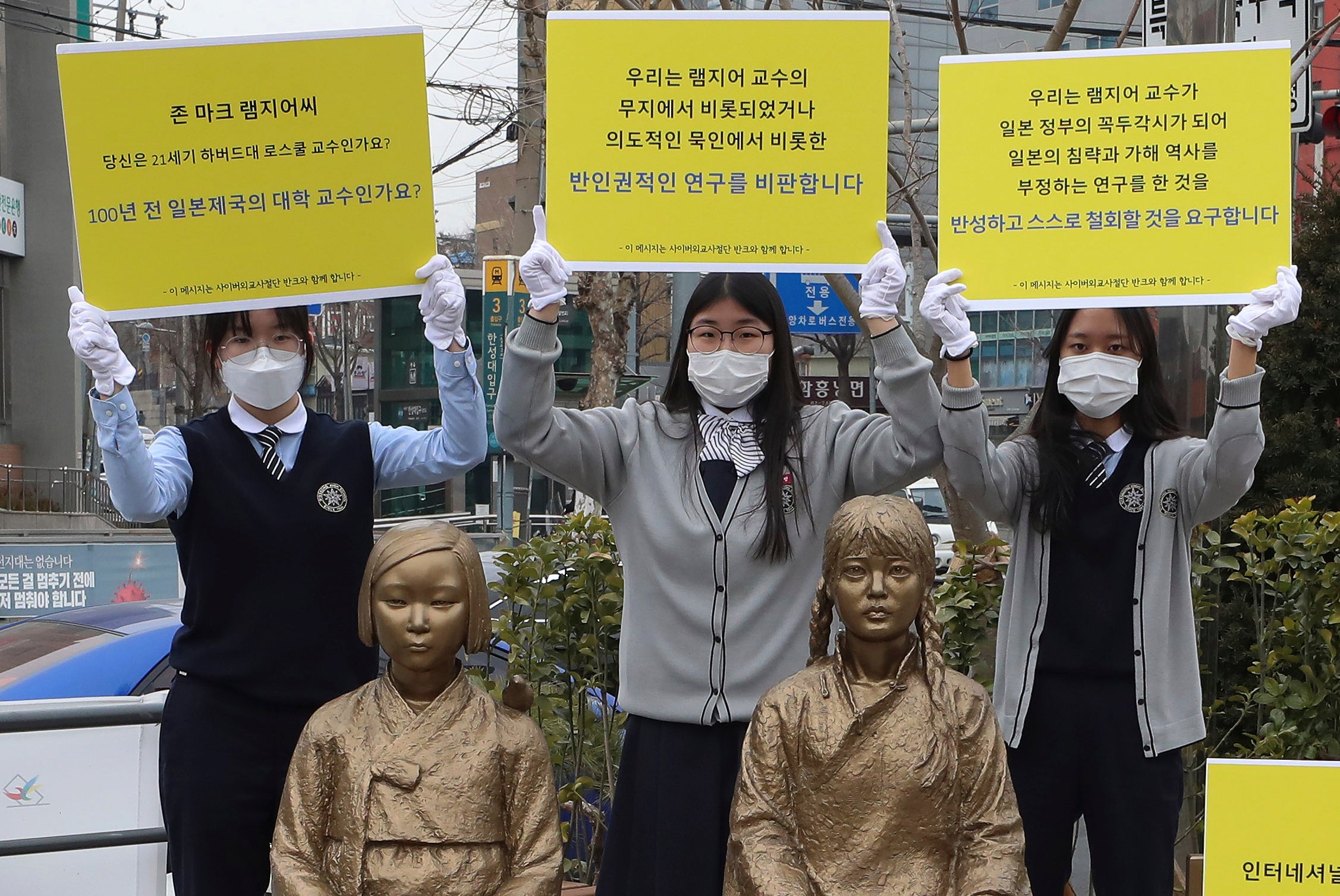Harvard professor sparks outrage after claiming Korean ‘comfort women’ worked as voluntary prostitutes, not sex slaves
The journal suspended its issue which carried Ramseyer’s article following an uproar

Your support helps us to tell the story
From reproductive rights to climate change to Big Tech, The Independent is on the ground when the story is developing. Whether it's investigating the financials of Elon Musk's pro-Trump PAC or producing our latest documentary, 'The A Word', which shines a light on the American women fighting for reproductive rights, we know how important it is to parse out the facts from the messaging.
At such a critical moment in US history, we need reporters on the ground. Your donation allows us to keep sending journalists to speak to both sides of the story.
The Independent is trusted by Americans across the entire political spectrum. And unlike many other quality news outlets, we choose not to lock Americans out of our reporting and analysis with paywalls. We believe quality journalism should be available to everyone, paid for by those who can afford it.
Your support makes all the difference.A Harvard University professor’s controversial claim that Korean women who were subjected to sex slavery in wartime Japan got involved in prostitution by choice has caused a global uproar.
J Mark Ramseyer, who is a professor of Japanese legal studies at Harvard, made this claim in a recent academic paper published in March, where he rejected years of research that Korean “comfort women” who were forced to work in military brothels during the second world war, were forced to get into prostitution.
According to Mr Ramseyer, the women willingly decided to become sex workers and entered into contracts, instead of being sent to brothels against their wish. He wrote: “The claims about enslaved Korean comfort women are historically untrue.”
“The Japanese army did not dragoon Korean women to work in its brothels,” he wrote. “It did not use Korean women as sex slaves. The claims to the contrary are simply – factually – false,” he wrote in his paper entitled “Contracting for sex in the Pacific War.”
Harvard Korean society issued a statement on the website calling Mr Ramseyer’s remark a “wrong conclusion based on grounds very biased and lacking trustworthiness.”
The research is also being criticised for its lack of evidence and first person accounts as several scholars at Harvard and other institutions say they checked Mr Ramseyer’s sources and found no historical evidence of the contracts he described. Hundreds of scholars have also written letters condemning Mr Ramseyer’s article.
The claim has also led to an international controversy between Japan and Korean nations, with North Korea and South Korea uniting over the issue. Japanese leaders have long maintained a defensive stand regarding the issue, while South Korea has been demanding an apology and compensation.
North Korea’s state-run DPRK also published an article calling Mr Ramseyer a "repulsive money-grubber" and a "pseudo scholar."
Decades of research shows that the torture inflicted upon the Korean women resulted in deaths, lifelong injuries and trauma. Several women after decades came out with their testimonies revealing the horror they faced.
The military brothels that were set up with the intention of providing soldiers with voluntary prostitution in order to minimise war rapes, were full of women from countries under the control of imperial Japan.
Several testimonies reveal that women were not just lured into prostitution by middlemen but also abducted from their homes. Although the exact number of affected women is unknown, the estimates are between 50,000 to 200,000 women were known to be in the brothels.
Join our commenting forum
Join thought-provoking conversations, follow other Independent readers and see their replies
Comments